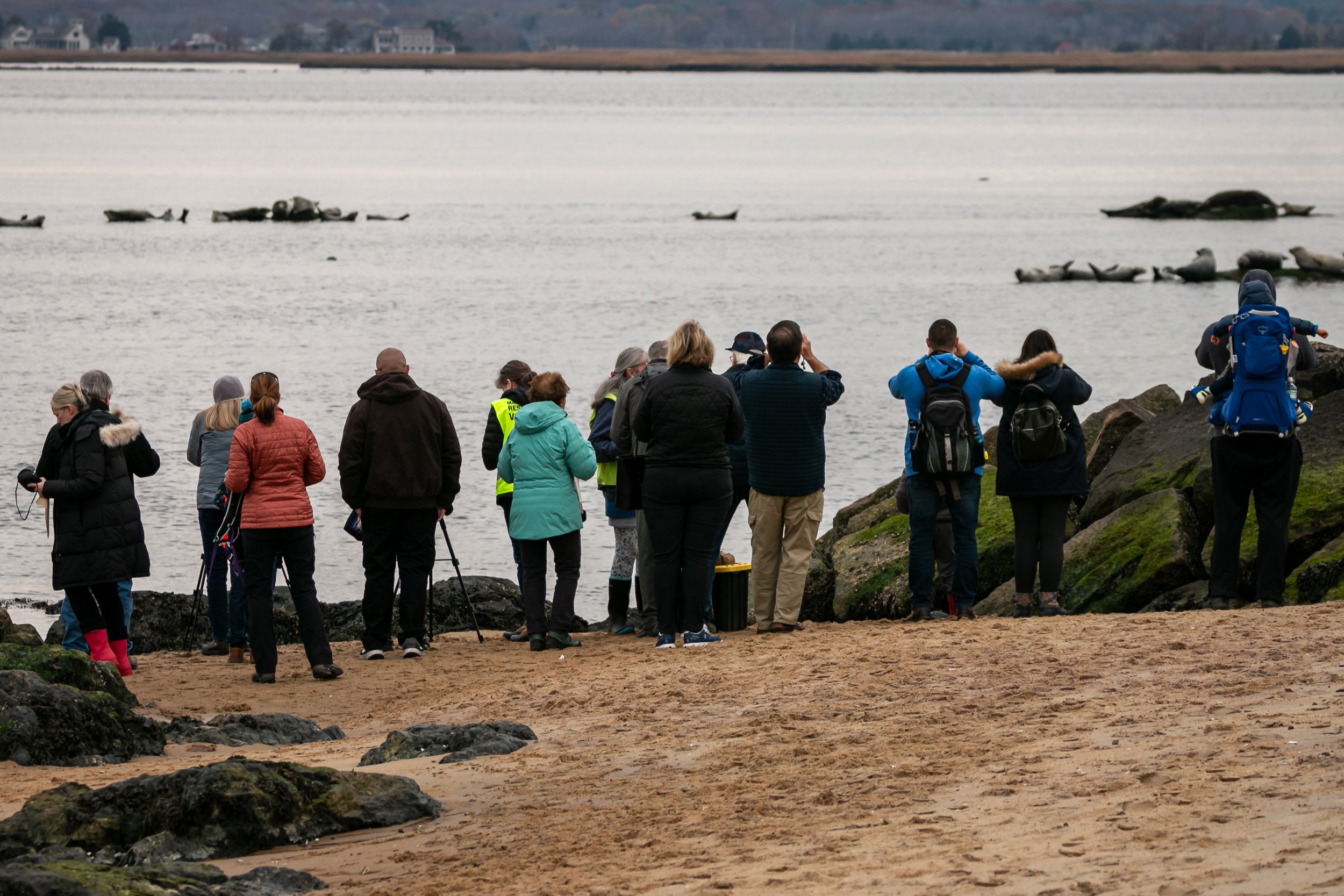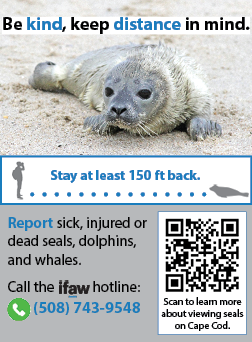
WHAT CAN YOU DO TO VIEW SEALS RESPONSIBLY?
Five ways you can view seals responsibly.
The image above courtesy of the Seacoast Science Center, Rye New Hampshire.
Learn more about seal watching and Seacoast Science Center’s “Seal of Approval” program
1. Give Seals Space. Share the Shore and Watch Seals Responsibly
Share the shore with seals. Bring your binoculars and enjoy watching seals from a safe distance, at least 150 feet away.
What about Drones? Viewing from the air-
The noise and close proximity of drones can disturb marine wildlife. When viewing marine mammals from the air using a drone:
Avoid flying drones, or unmanned aircraft systems (UAS), near animals. The noise and close proximity of drones can harass the animals and cause stress.
2. Prevent Dangerous Encounters with Seals. Keep your dog leashed.
It is important to keep pets away from marine mammals, for their safety and yours. Pets should always be leashed when wild animals are near to prevent injury and the spread of disease to seals or your pet.
Pets can also cause distress for wildlife. Seals may become aggressively towards you or your pet. Leashing your pet is kind for wildlife too.
3. When Kayaking, Avoid Close Approaches to Resting Seals.
Kayaking is a great way to get on the water and view wildlife. Just like on land, you should keep at least 150 feet away from seals.
4. Keep Seals Wild and Healthy. Feeding Marine Mammals is Harmful and Against the Law!
Seals risk becoming accustomed to humans for food, and can become aggressive if fed, or provisioned, by humans. These behaviors put both humans and seals at risk. It is also against the law and you can be fined under the Marine Mammal Protection Act.
5. Unsure If a Seal Needs Help? Find Expert Responders.
Report a stranded marine mammal to your authorized local marine mammal stranding network partner.
A marine mammal is stranded if it is sick, injured, entangled or out of habitat. Sometimes seals just need a rest and it is important to leave them alone. You can help Stranding Network Personnel by giving a call to their hotline number and share information needed to assist their efforts to decide what is best for these animals.
On Cape Cod, Call the IFAW Hotline 508-743-9548
Not Sure what region/number to call? Follow the link above or call the NOAA Stranding Hotline:
(866) 755-NOAA (866-755-6622)
Know the law.
The Marine Mammal Protection Act prohibits the “take” of all marine mammals in U.S. waters.
Take means "to harass, hunt, capture, or kill, or attempt to harass, hunt, capture, or kill." Take includes feeding or attempting to feed a marine mammal in the wild. Some exceptions are made for authorized scientific research and subsistence hunting by Alaska natives.
Harass means "any act of pursuit, torment, or annoyance which has the potential to injure a marine mammal or marine mammal stock in the wild; or has the potential to disturb a marine mammal or marine mammal stock in the wild by causing disruption of behavioral patterns, including, but not limited to migration, breathing, nursing, breeding, feeding, sheltering."
More ways to enjoy seals responsibly.
Join a Seal Walk or a Seal Cruise offered by marine mammal stranding network partner, researchers and marine mammal education specialists.
Depending on the season, you may see harbor seals, gray seals, or even a visiting winter harp or hooded seal! For more information:
Center for Coastal Studies, Provincetown, MA
Seacoast Science Center, Rye, NH
Whale and Dolphin Conservation, Plymouth, MA
Atlantic Marine Conservation Society (AMSEAS), Hampton Bays, NY
The Coastal Research and Education Society of Long Island, (CRESLI) Shinnecock Bay, NY





